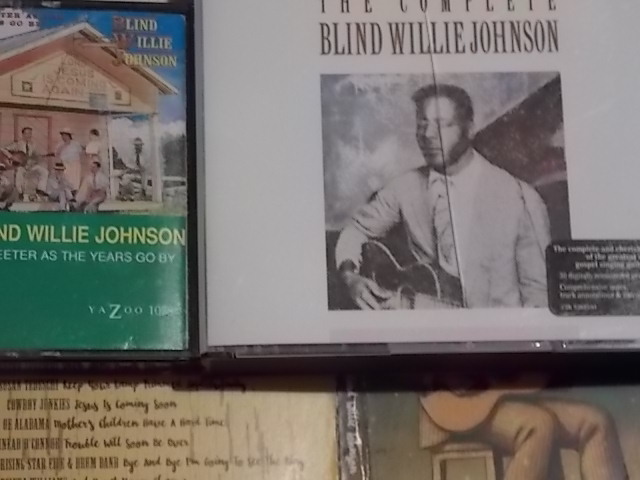Back in 1985, in the job I was working in , I was often sent to training courses in Glasgow or Edinburgh, and back in those days, you had to find your own accommodation by looking up the telephone directory of the time, and checking with colleagues whichever B&B, or hotel they had stayed in, did they recommend it and how much did it cost.
We were allocated a certain amount of expenses , and if you stayed in somewhere cheap, you had some spare cash to yourself to do what you wanted with. Some colleagues would frivolously spend this money on alcohol and cigarettes, others were sensible, buying books, or records. I was one of the sensible ones, in my opinion.
This was , I suppose, a small recompense to being away from home in a strange city, not knowing anyone or your way around the place, you made your own entertainment, maybe went to the cinema, or a concert, something along those lines, maybe a rock band would be playing at the Glasgow Apollo, or the Edinburgh Playhouse, if you were lucky.
On one of those trips, to what seemed to me , the vast teeming metropolis of ’80s Glasgow, I often visited Tower Records on my lunchbreaks , and discovered that in addition to the widest selection of music I had ever seen, they also sold books! I dived in there, books about The Doors, Patti Smith, Bob Dylan, Lou Reed, you name it, they had it in stock. There was a selection of ‘cult classics : ‘, ‘On The Road’, ‘Brave New World’, ‘The Handmaid’s Tale’, ‘The Master and the Margarita’ , stuff like that.
I bought ‘No-one Here Gets Out Alive’ by Danny Sugerman, his memoir of his time with the Doors, ‘Kodak’, poetry by Patti Smith, whose music I was really getting into, and ‘Motel Chronicles and Hawkmoon’ by Sam Shepard. Sam Shepard had also written the screenplay for ‘Paris , Texas’, a film which came out in that year, directed by Wim Wenders and soundtracked by Ry Cooder, who was providing me with a window into the world of country blues, which subsequently led me to the music of Blind Willie Johnson, whose ‘Dark Was The Night, Cold Was The Ground’, provided the theme to the movie. I played the soundtrack to ‘Paris Texas’ constantly during the long hot summer of 1985, as I started getting more eclectic in my musical taste (as mentioned in my review of Thurston Moore’s ‘A Sonic Life’, at the tail end of last year). Somehow, Robert Johnson seemed to be more of a thing for me at the time, as opposed to Blind Willie Johnson, but I bought an LP of Blind Willie’s music later on in the 90’s at a record fair in Aberdeen , for the princely sum of £10, it wasn’t bad, and also the cassette ‘Sweeter As The Years Go By’, on the Yazoo Label. I had read about his music and was intrigued to find out that John Fahey, the legendary guitarist, and a favourite of mine , was moved to tears the first time he heard Blind Willie Johnson’s music, and had referred to this as a religious experience when describing it later in his life. Blind Willie Johnson’s music is quite unique, his vocals guttural and intense, reminscent of those who came after him, like Howling Wolf, or Captain Beefheart. The slide guitar punctuates the vocals in a sort of call-and -response way.
Blind Willie sang of religious, biblical themes, his voice was far from angelic, but countered by the voice of Willie B. Harris, it works really well, gospel blues at its finest, with the slide guitar to the fore in most of the pieces.’ Keep Your Lamp Trimmed and Burning’ , ‘ John the Revelator’, ‘City of Refuge’ and more.
So Blind Willie Johnson’s music led me to discover many great blues musicians, such as Ry Cooder, through the ‘Paris, Texas’ soundtrack and his eponymous debut album from 1970, also Missisippi Fred McDowell, Howling Wolf, and newer blues players like Corey Harris, Alvin ‘Youngblood’ Hart and the tremendous Tedeschi/Trucks band.
Worth a look also is the film ‘The Soul of a Man’ directed also by Wim Wenders
This film came out in 2003, and explores the lives and music of three of Wenders’ favourite blues musicians, namely Blind Willie Johnson , Skip James and J.B Lenoir, with stunning performances by the likes of Lucinda Williams, Nick Cave, Cassandra Wilson, and Marc Ribot exploring and interpreting the works of these talented musicians. Definitely worth watching.
Playlist:
Ry Cooder- ‘Dark Was The Night’ from ‘Ry Cooder’ -1970
Captain Beefheart and the Magic Band- ‘Tarotplane’ from ‘The MirrorMan Sessions- 1999
Derek Trucks and Susan Tedeschi- ‘Keep Your Lamp Trimmed and Burning’ from ‘God Don’t Never Change’ (The Songs of Blind Willie Johnson) -2016
Tom Waits -‘The Soul of a Man’, also from ‘God Don’t Never Change’ (The Songs of Blind Willie Johnson) -2016

